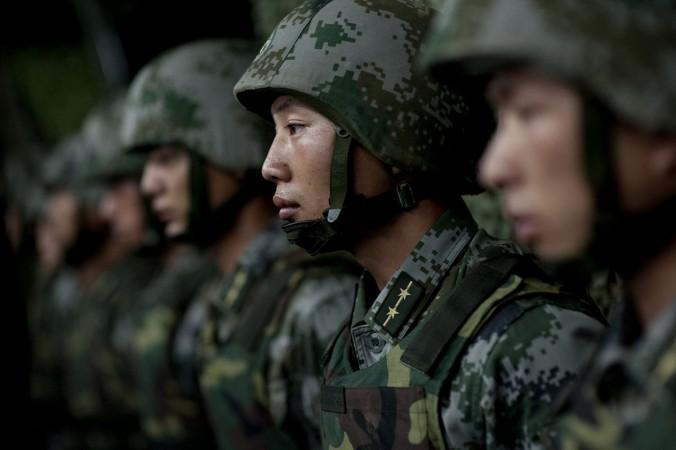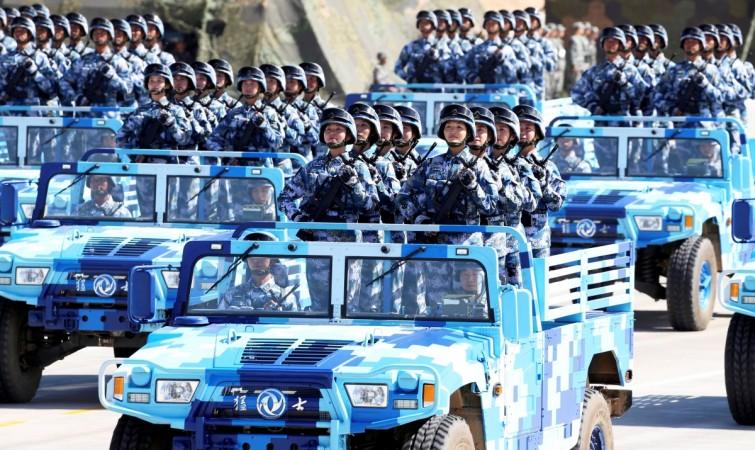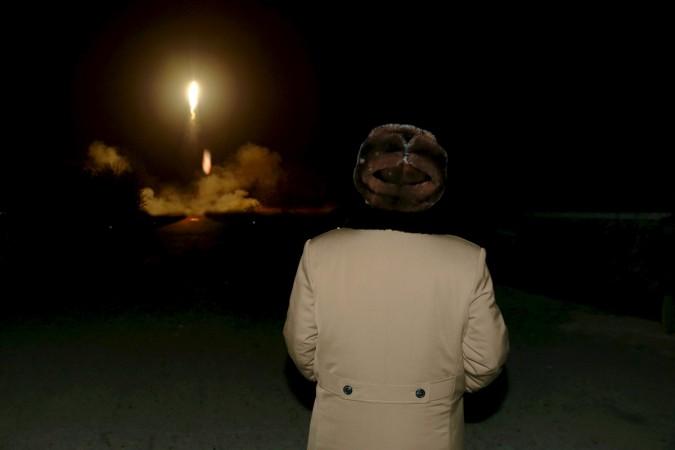China's Air Force reportedly conducted exercises near the Korean peninsula on Tuesday and Wednesday, in an effort to practise defending itself against a "surprise attack" coming over the sea.
The drills came days after North Korea's hydrogen nuclear test, which reportedly produced an explosion nearly 10 times larger than the blast from the Hiroshima bomb in 1945. The test spurred a global concern that Pyongyang may be planning more such weapons test, possibly of a long-range missile.
On Sunday, North Korea had claimed that it had successfully detonated a hydrogen bomb — sixth nuclear test carried out by the country and the largest — which possibly triggered a 6.3-magnitude artificial earthquake.

A Chinese official military website on Wednesday said that an anti-aircraft battalion held the exercises early on Tuesday, near the Bohai Sea, the innermost gulf of the Yellow Sea that separates China from the Korean peninsula, Reuters reported.
Troops travelled to the site from central China before beginning drills to thwart the "surprise attack" simulating real battle from the Korean peninsula, www.81.cn said.
"The troops' rapid response capabilities and actual combat levels have effectively been tested," the site said, adding that it was the first time certain weapons had been used to shoot down low-altitude targets coming over the sea.

China's Defence Ministry issued a statement late on Wednesday saying that the drills "do not target any particular goal or country", adding that they were a part of an annual plan to boost the capability of their troops.
Pyongyang's announcement on Sunday was meted with severe verbal backlash from across the world, with countries like the US, Japan and South Korea demanding even stricter sanctions from the UN against the North, in an effort to cripple its economy, thereby forcing the nation to curb its missile tests.
The US Ambassador to the UN, Nikki Haley, said that North Korea's Kim Jong-un was "begging for war" and urged the 15-member UN Security Council (UNSC) to impose the "strongest possible" sanctions to deter him.

Soon after the hydrogen test on Sunday, North Korea claimed that the explosion had come from a hydrogen bomb which is capable of being carried by an intercontinental ballistic missile (ICBM). Reports state that Pyongyang may be preparing to also launch an ICBM missile this Saturday.
If North Korea's claims are true then it suggests a significant advancement in the country's burgeoning nuclear programme, which the United Nations had attempted to thwart by imposing several sanctions against the country.
With North Korea's burgeoning nuclear programme, unbridled missile tests, and Unites States' threats of military action, a highly-plausible prospect of a nuclear war looms across the world.
















